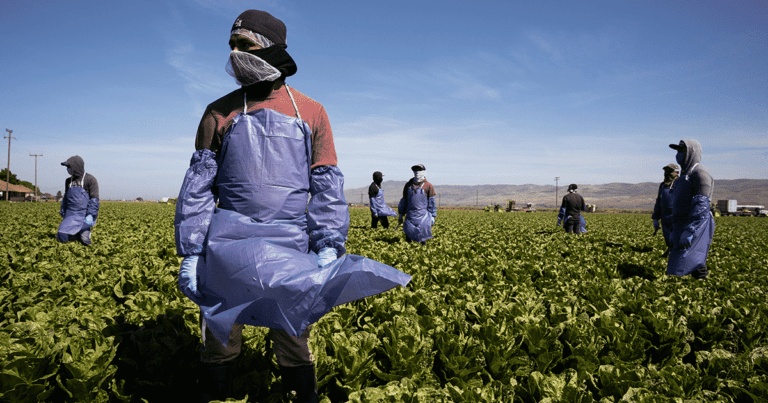News coverage of Amazon’s minimum pay raise continued yesterday. After its initial announcement, Amazon added that it will lobby Washington to increase the federal minimum wage from $7.25 an hour but did not specify how much it would push for. The New York Times opined that Amazon’s announcement could spur other employers—especially retailers and warehouse operators—to raise their own low-wage workers’ hourly pay in light of falling unemployment rates and increased consumer demand. Investors apparently agree; the stock prices of many retail companies fell after Amazon’s announcement, reflecting shareholders’ belief that retailers will have to raise wages to compete with Amazon in a tight labor market. One New York Times columnist suggested that the raise could herald the end of corporate greed, praised those who put political pressure on the company, and argued that public shaming could affect real change in the context of weakened labor unions. Meanwhile, Senator Bernie Sanders, who introduced a Senate bill called the “Stop BEZOS Act” last month, praised the retail giant and urged other employers to follow suit. For its part, The Wall Street Journal called the pay raise a form of “political insurance” against critics like Sanders, praised the company’s shrewd timing, and warned about “big business conspir[ing] with big government” to raise the federal minimum wage.
The International Brotherhood of Teamsters is picketing with truck drivers in Southern California in support of a new state law that aims to crack down on labor law violations in the shipping industry. Last week, California Governor Jerry Brown signed a bill that will hold shippers—including Amazon and Target—liable for the wage-and-hour claims of freight-handling companies that break the law and fail to pay final judgments to their workers. According to the Teamsters, freight drivers are frequently misclassified as independent contractors and as a result are denied the benefits of full-time employees. However, the California Labor Commission has approved almost $50 million in wage-and-hour claims for independent freight drivers over the past few years. In response to the protests, a spokesperson for XPO Logistics accused the Teamsters of “spreading misinformation” and stressed that many of their workers prefer to be independent contractors.
Last week, the largest employees’ union at the University of Washington ratified a two-year contract with the university, ending months of protests and walk outs. The new contract guarantees a two percent raise by July 2019, another two percent raise in 2020, and the possibility of future raises to reflect increases in the cost of living, pending legislative support. The university has committed to working with the SEIU to request future “locality pay” raises from the state legislature. The contract also contains language limiting the university’s ability to contract out work, addresses institutional racism, and gives employees free transit passes. The workers, who are represented by the Service Employees International Union Local 925, voted 93 percent to accept the university’s offer.
Associated Press reports that state marijuana laws are creating tensions between employers and employees. State courts in Connecticut, Massachusetts, and Rhode Island have all recently ruled in favor of employees alleging discrimination after drug-testing employers fired them for using medical marijuana. Those rulings may reflect a cultural shift: in years past state courts in California, Colorado, Washington, and Oregon all found in favor of employers in medical marijuana-related termination suits. A spokesperson for NORML, a pro-marijuana lobbying group, asserted that one recent decision “reflects the rapidly changing cultural and legal status of cannabis, and affirms that employers should not be able to discriminate against those who use marijuana responsibly while off the job, in compliance with the laws of their state.” Meanwhile, the American Bar Association called medical marijuana cases “an emerging trend in employment litigation.” But the rulings may leave many employers in a difficult position. Marijuana is still illegal under federal law, and employers who rely on government contracts fear that the federal government will rescind those contracts for employing those who test positive for the substance.






Daily News & Commentary
Start your day with our roundup of the latest labor developments. See all
July 26
Prop 22 survives; video game workers take action; NLRB challenged.
July 25
Disney union reaches tentative agreement, FAA agrees to improve worker conditions, and Olympic dancers drop strike notice.
July 24
Unions demand end to military aid for Israel; UAW and Teamsters hold out on Harris endorsement; Judge declines to block FTC ban on non-competes
July 23
NLRB drops appeal of a district court case striking down its joint employer rule; red states challenge EEOC’s pregnancy rule; and the WNBA players’ union taps advisors.
July 22
Unions respond to Biden's exit, many back Harris.
July 19
The Bronx Defenders Union announces a tentative collective bargaining agreement; Amazon workers continue a strike in Skokie; Bangladesh students continue protests over government job quotas.